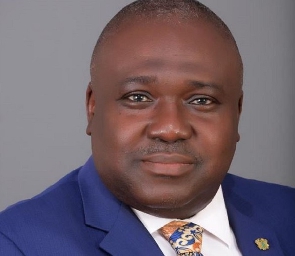Director of Research at the Central Bank, Dr. Philip Abradu-Otoo, has insisted that the decision to provide financing for government's budget in the wake of the post COVID-19 era was necessary.
According to him, the Ghanaian economy was on the brink of a collapse and therefore required the Central Bank to provide support to government to avert further crisis.
Speaking at the University of Ghana's 75th Anniversary Public Lecture on “Ghana’s Economic; The need for Paradigm Shift", Dr Abradu-Otoo said the BoG was left with no choice but to move ahead with salvaging a looming economic collapse.
“So the Central Bank’s point of view, we realised we needed an economy to protect. So, there were choices that had to be made, should we allow the economy to collapse or we should stick strictly to issues of fiscal dominance and then who picks up the pieces after the economy has collapsed,” he stressed.
“But that financing that we did in 2022 went mainly to deal with investors; domestic investors whose bonds had matured and government needed to pay these bonds and for which government had no resources”, Dr Abradu-Otoo explained.
The Director of Research added that the Central Bank supported the government as a lender to safeguard and protect the financial sector from a near collapse during the period.
“Hundred percent of that amount [BoG financing] was due to domestic bonds that had matured for which we had to step in to save these domestic investors. And that is where this fiscal dominance issue came in”.
“So yes, it came in but we did that to save domestic investors”, Dr Abradu-Otoo concluded.
Meanwhile, the Bank of Ghana and the Ministry of Finance have committed to zero financing for the 2023 fiscal year and beyond - both parties are expected to sign an MoU to that effect.
Speaking at the 111th Monetary Policy Committee press briefing on March 27, Dr Addison emphasised that the decision falls under the Staff Level Agreement reached with the Bretton Wood institution for an economic bailout for Ghana.
He added that it also forms part of prudent macroeconomic policies which are expected to trigger a disinflation path and downward trends in the monetary policy rate which is now pegged at 29.5 percent.
MA/FNOQ
Business News of Tuesday, 11 April 2023
Source: www.ghanaweb.com













